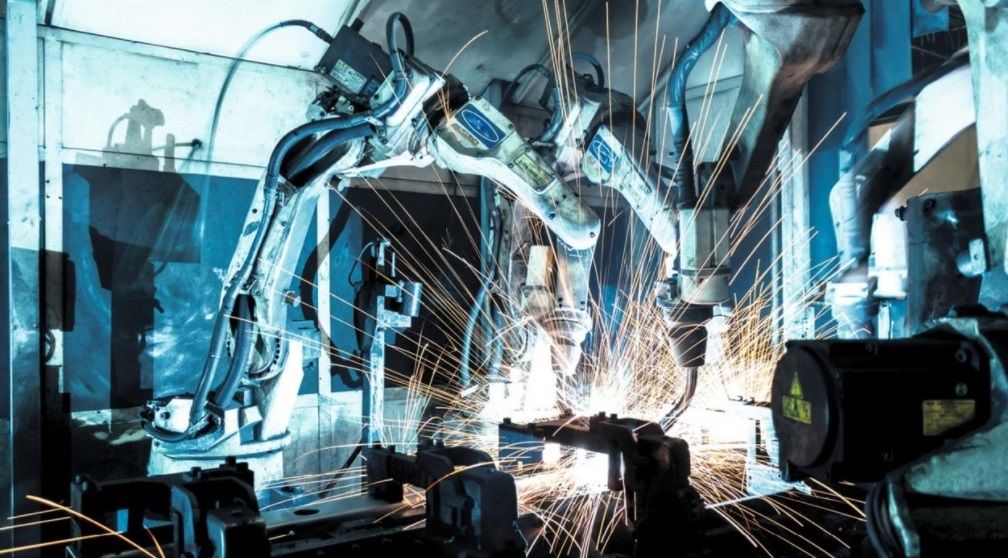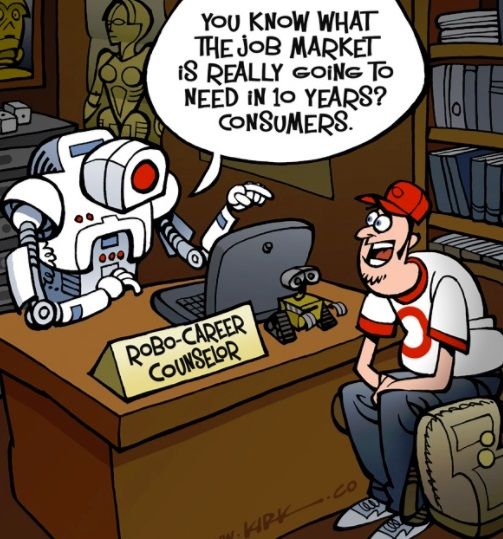Software and robotics are two of the great forces that will redefine the labor market. How prepared are we to take on an inevitable transformation?

Automation is perhaps one of the terms that today is more commonly associated with the labor market. The word usually comes with warnings and contraindications, as an experimental drug. And it is even understood to be this way: the most pessimistic forecasts say that half of the activities for which people receive a payment can be automated with technologies that already exist.
But this is just one side of the coin, as the introduction of technology tends to improve productivity in industries and creates new work lines in the labor market. Some estimates foresee that the overall increase in production from the use of the steam engine was 0.3% between 1850 and 1910, this figure was 0.4% for use of robotics between 1993 and 2007; of 0.6% for information technologies between 1995 and 2005 and can be 0.8 and 1.4% for automation of work between 2015 and 2065.

With all fairness, automation is not an entirely new matter, since the concept involves facilitating mechanical and repetitive work with technological means, which may well be a set of pulleys, printing, steam engine or data analysis.
If the past tells us something is that these changes are inevitable, on the one hand. On the other, that its consequences are “bearable”. So, how to survive this kind of apocalypse announced? I say it is necessary to make a transformation of the labor market. Focus more on the tasks that deliver added value and adapt to the entry of the unstoppable technology.
This transformation involves matters like investing in the technology sector. This translates into more education in careers in applied sciences and Information, Communication and Telecommunications sector, as well as an increase in the remuneration of the jobs of the sector; These two movements aim to create more and better positions in this line. In short, it is about producing value from technology and to be able manage the sidelined massive jobs.

At a global and governments level, most are already starting to take steps on internet issues of things and cybersecurity; much work needs to continue in areas such as big data and robotics. The latter is a very experimental area now, which remains in the universities and research institutes - there are great opportunities.
Although it is a growing debate, all this discussion continues to be a bit of a niche: the dangers and benefits of this issue go from small groups to the bulk of the companies and the population. Here, too, there is a pending communication task: that cost savings through the automation of repetitive and operative tasks can range from 8 to 35% in items such as waste of raw material and energy use.
Some of the classic sectors leading the way in automation worldwide are heavy industries such as automotive and utilities. For example, the review of turbidity levels or flow management and pumping and distribution equipment in many aqueducts is done using machines, sensors, software and algorithms; the picture is similar in the hydrocarbon sector.
How prepared is the majority of the global workforce? In the first instance, there is a lack of awareness and implementation of digital security for factories: 40% of very small corporations and companies do not even have security analysis for their factories. This is a factor of basic competitiveness and, perhaps, of survival. See what happened with the Wannacry attack that crippled the operation of hundreds of companies around the world.

In addition to the above, the manufacture of automation equipment, which in some cases are robots, relies almost exclusively on foreign companies.
On the positive side, scheduling and designing programs and drivers for automated processes has gained traction at worldwide levels. These types of companies are known in the medium as integrators, and it is estimated that they are increasing almost exponentially.

In few words, or, perhaps a summary: we have gained ground in software, but we lack a lot in hardware.
I do think the human replacement by machines are inevitable, altough I don't mind if my food bowl remain full.
Downvoting a post can decrease pending rewards and make it less visible. Common reasons:
Submit
There is quite the lack of honesty, when it comes to communicating what will happen to a lot of jobs, both blue and white collar ones. It is understandable though. The messenger of bad news gets always hanged first.
As for the lack of security, not all of it is a lack of awareness. Good security is expensive and may be out of reach for small companies. Close your eyes and hope for the best...
Best advice you can give is tell someone they'll need to embrace change. But that is hard for a lot of people. No easy way out of that one.
Downvoting a post can decrease pending rewards and make it less visible. Common reasons:
Submit
Yes I would agree; resistance to change is the toughest one.
Txs.
Downvoting a post can decrease pending rewards and make it less visible. Common reasons:
Submit